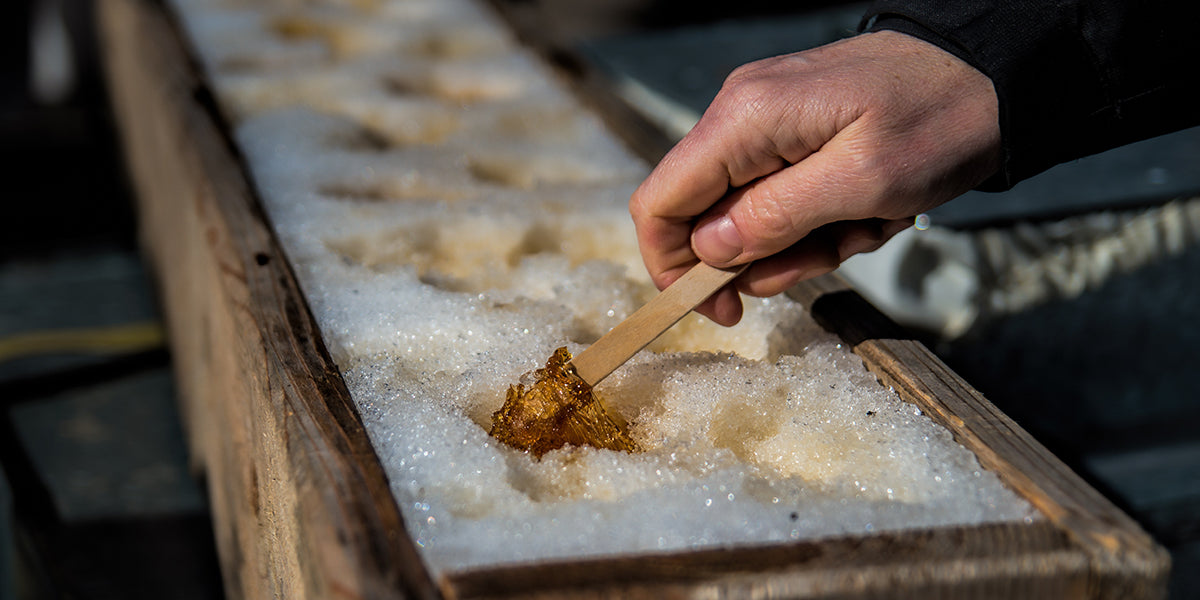Mankind is now at a crossroad with the environmental crisis. The consequences of climate change are getting more and more noticeable. It is a necessity to act now or never to change our ways. This crisis has made us realize that the ways in which we are living are not sustainable in the long term and a shift is starting to occur in the society’s mindsets. Lots of people are trying to reinvent themselves, from changing habits of transportation to eating more veggies opposed to meat, everyone is conscious to transform. We are currently in a world of transitions regarding what’s best for the environment. This preoccupation is also relevant to organizations, as their consumers want to feel that they have the well-being of the planet at heart and moreover, that they are eco-friendly. Greenwashing is out, we want to see real actions taken. This is why, we, at Canadian Maple Company, decided to offer you biologic maple syrup. No matter what, we treat our maple trees with care and love, because for us, it is so much more than maple products, it is our legacy and we want to be able to pass it to the consumers for the longest time.

The maple syrup production industry is not without flaws on the environmental front, but the producers are acting concretely to become eco-friendlier. The biggest environmental critic against the production of maple syrup is the high amount of energy that is needed to turn maple water into maple syrup. However, many maple groves are changing their equipment to lean towards a process that creates less carbon dioxide. Most of the CO2 of maple groves is produced when they burn wood to boil the product, therefore, if they change that for an electric machinery, the level of emissions would certainly lower and the environmental benefices would increase. For instance, in Quebec, the producers have an objective to significantly lower their emissions before 2030. They are aware that the old process might have worked before, but with the actual society in which we are living in, they need to adapt and be eco-friendlier.
This awareness is also noticeable in the general production of maple syrup in Canada. In 2019, more than 44% of the maple productions were certified biologic. This implies that their production is necessarily designed to reduce harm to the environment and correspond with the sustainable development mentality. In other words, at least 44% of the maple production is completely eco-friendly and for those who are not biologic, real efforts are made to change their process of transformation. In 2016, only 26% of the production was considered biologic. Since the biologic certification is a process that can take up to three years to achieve, that augmentation does show their willingness and their commitment.

Moreover, in Quebec, there are 34 millions of tapped maple trees in the industry. These represent 71% of the whole worldwide maple syrup’s production. According to a study, these 34 millions trees have an incredible power of carbon absorption, as they store 962 200 metric tons of carbon each year. This would be comparable to cancelling the emissions produced by 290 000 cars! If that really doesn’t mean anything to you, just let me tell you, this is a lot. That represents only a fraction of the total of maple trees, since there are a lot more of untapped trees that contributes to store CO2. When the study was conducted, the total of maple groves produced 109 397 metric tons of CO2, but the trees are able to make up for it and store eight times more than they produce.
When a maple grove produces maple syrup, it is protected by the Act to preserve agricultural land and agricultural activities, at least in Quebec. This prohibits to cut the maple trees or to use a producing maple grove for anything other than producing this liquid gold. This law protects the land and assures the sustainable development of maple groves. In other words, it preserves a good number of trees and reduces deforestation. There is a lot of potential with untapped maple trees, they could be preserved as well with this legislation if they were to produce. Therefore, when you consume maple syrup, in a certain way, you protect the forest where it comes from.

The maple syrup industry is ingrained in the lives of Canadians. It’s a tradition that is implanted in our roots from long before we can remember. The maple syrup is a constant that we want to adapt in the perspective of assuring its sustainability. The repercussions of climate change also affect the maple syrup producers more and more, therefore, they understand the urgency of engaging changes. How can they survive and make the best of this situation? They need to adapt fast to make the most of it and continue with this tradition that is so very important in the Canadian identity. We want, and more than that, we need to ensure this tradition for the future generations. We are so very proud of our production and this is why we want to be the eco-friendlier possible. We choose to offer you pure maple syrups that are biologic because we want what’s best for our customers. We understand your needs and we give you a product that fits with your beliefs and that has integrity.
---
References:

 0
0